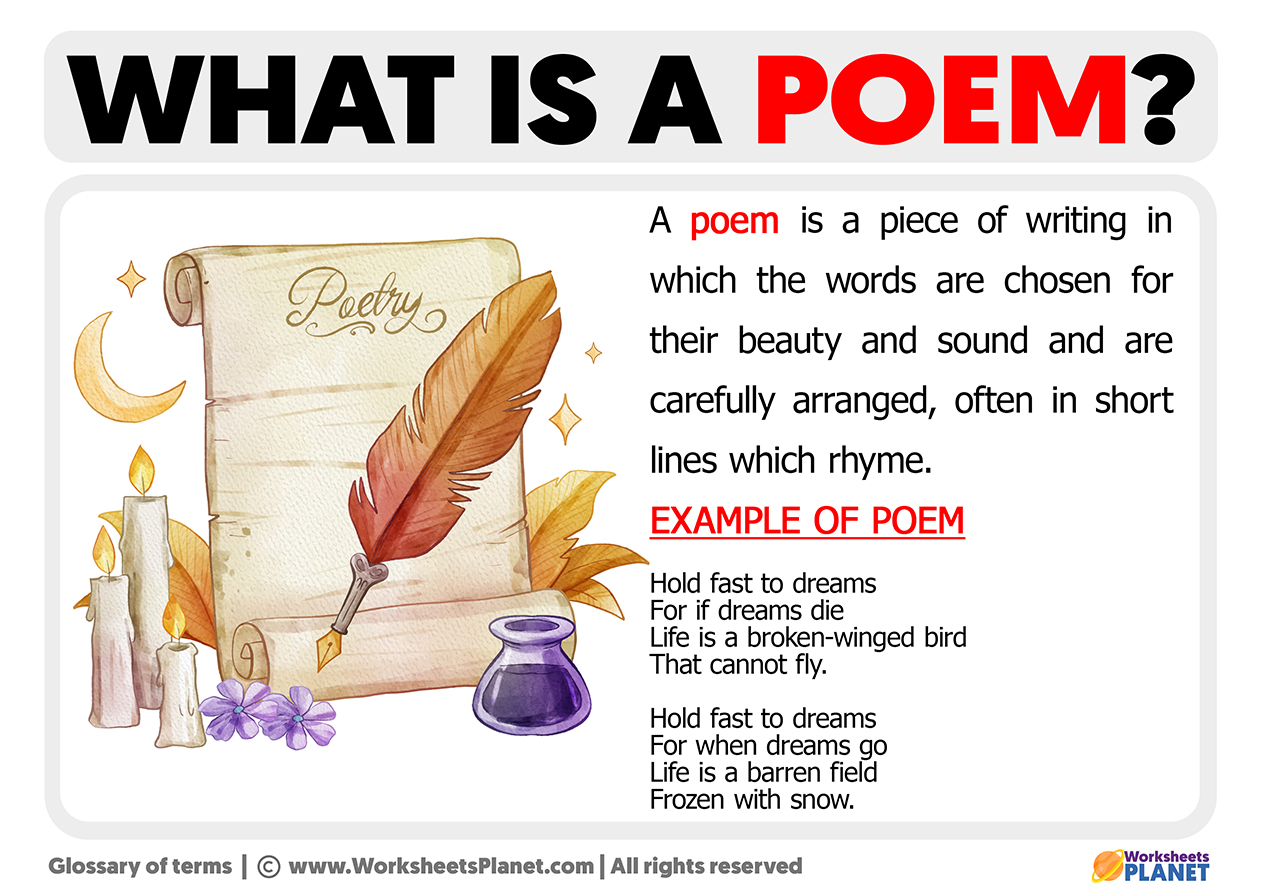Definition of Poem
A poem is a poetic composition of variable length that belongs to the lyrical genre. The most common way a poem is organized is in lines and stanzas, but it can also be written in prose. The poems can be structured with a particular meter and be subject to rhyme and rhythm, or, on the contrary, they can have a free verse.

The poem has an aesthetic purpose, it mainly uses the poetic functions and it is accompanied by the emotional. The poetic self is in charge of subjectively expressing emotions, feelings, or experiences.
The origin of the word poem comes from the Greek Poiesis, which means creation, and later derived to poēma, in Italian.
Characteristics of a poem
Poems are structures that value aesthetic freedom, so while many have a fixed structure, contemporary poetry presents free verse without any configuration.
Some characteristics of poemas are the following ones:
- They value aesthetic content over rational content.
- They are mainly subjective.
- It has a fixed meter if it maintains a structure, for example, the sonnet.
- It condenses in a few words emotions, sensations, or ideas.
- Its purpose is aesthetic.
- It uses poetic resources: phonic, semantic, and syntactic.
- Poems have the possibility of using a “poetic license”, such as breaking grammar rules or inventing words, etc.
- It maintains an internal rhythm, and the musicalization that it gives it is essential even in poems without rhyme.
Types of poems
Poems can be free (without a fixed structure) or fixed to a format of specific lines, stanzas, rhyme, and meter. Some types of poems are, for example:
- Sonnet: 14 hendecasyllable lines divided into two quatrains and two triplets.
- Lira: 5 lines: 1st, 3rd, and 4th, seven syllables, 2nd, and 5th hendecasyllables.
- Copla: 3 or 4 octosyllable lines. It was born as a popular song.
- Eclogue: poem of bucolic theme.
- Romance: indefinite number of eight-syllable lines, with assonance rhyme in precise lines and free verse in odd lines. It tells a story.
- Ode: divided into equal stanzas, celebrates feats of people or attributes of things.
- Haiku: 3 verses usually express love for nature (typically from Japan).
- Acrostic: a message formed by the initial, middle or final letter of the verses creating a word that can be read vertically.
- Poetic prose: written in prose, it has no verses. It reflects the inner world of the poetic self.
- Epigram: short, funny, and satirical poem.
- Elegy: a long poem that expresses pain, melancholy, and sadness.
- Heroic elegy: a long poem that reflects a feeling of pain or collective sadness.
- Hymn: solemn tone created to be sung. It can be religious, sports, patriotic, et
- Gregarious: short sentences with a curious, ironic, or humorous tone.

